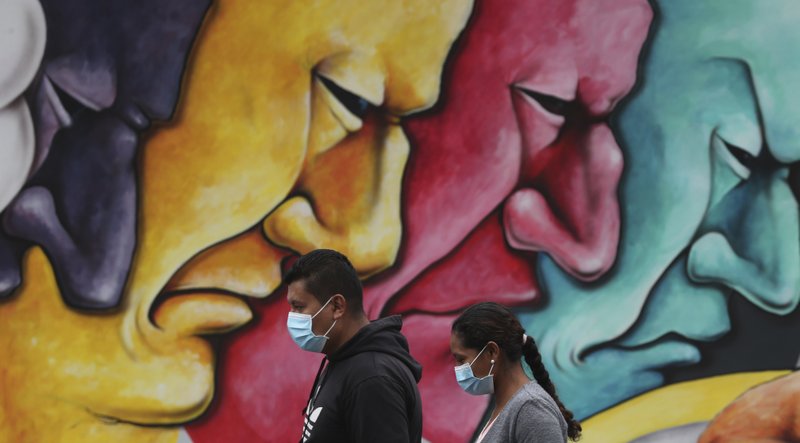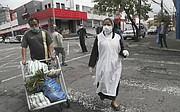Soldiers have taken over street corners in poor neighborhoods. The mayor is answering to an emergency committee run by the army. Hundreds of curfew violators have been detained.
Nowhere has the coronavirus hit harder in Latin America than in Ecuador and nowhere more so than in the steamy coastal business center of Guayaquil, where there is a military-run lockdown. The city and its surroundings account for more than 70% of the nearly 1,800 confirmed cases, according to a running tally by Johns Hopkins University. The mayor and four other heads of suburbs have all tested positive. Thirty-four Ecuadorians have died.
Ecuador is a country of 17.5 million people who depend on oil, shrimp, cut flowers and banana exports to keep their dollarized economy humming and this couldn't have come at a worse time.
Hospitals are facing stress even with testing showing a lag of two weeks to get definitive results. So desperate was the Guayaquil mayor, Cynthia Viteri, to protect the population, that she ordered police pickups to the airport to prevent empty European flights from landing to ferry out nationals who were stuck in the quarantine.
[CORONAVIRUS: Click here for our complete coverage » arkansasonline.com/coronavirus]
Close to 3,000 soldiers have been deployed locally, according to Karla Escobar, an aide to Viteri. "The army is in charge under the emergency committee in coordination with the mayor," she said by phone.
With government finances reeling, private donors have stepped up to pay for and distribute 120,000 food kits to needy families in only a week, said social activist Karla Morales.
The pandemic in Guayas province, with a population of 4.4 million and where temperatures range from 75 to 88 Fahrenheit in March, has cast doubt on the notion, suggested by some scientists, that covid-19 wouldn't spread as quickly in warmer weather, as with other viruses. This theory has been the basis for hope that the virus will slow in the Northern Hemisphere in coming months.
Total cases in and around Guayaquil outnumber those of Sao Paulo, Brazil's megacity with 20 million inhabitants in the greater metropolitan area.
[Gallery not loading above? Click here for more photos » arkansasonline.com/329pandemic/]
The health crisis hits Ecuador at a particularly vulnerable time. The country depends on crude exports for 10% of government revenue and prices have collapsed 54% in the past month.
President Lenin Moreno's government can't print its way out of the crisis since it uses the U.S. dollar as its official currency and the limited spare cash Ecuador has is needed to pay foreign debts. Its bonds, which have fallen 75% this year -- more than any other government securities -- resumed losses Wednesday.
On Monday, when faced with a $325 million debt payment with reserves standing at just $3.2 billion, the government rejected calls from Congress to impose a moratorium on its obligations and paid the bond, only the second maturity fully met in its 190 years of independence.
The government argued that paying the bond now unlocks $2.5 billion of financing and future foreign debt payments will be reprofiled including the use of grace periods for interest payments to allow focus to shift to the health emergency.
While it arrived relatively late in Latin America, the coronavirus is now spreading. The initial cases came from affluent world travelers who may have gone to Venice, Italy, for the Carnival or skied in Vail, Colorado, or conducted business in Wuhan, China. Ecuador's first case came from Spain.
A Section on 03/29/2020


